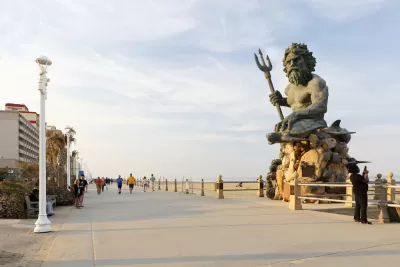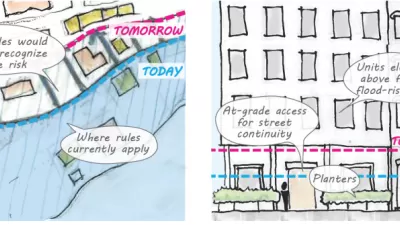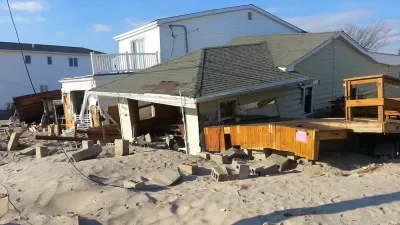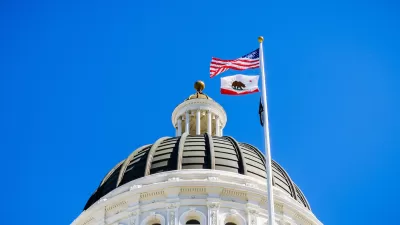Only a few places have managed to stem the tide of development in areas at risk to the effects (like wildfire and flooding) of climate change. Virginia Beach is an early test bed for what it takes to tell developers "no."

Christopher Flavelle and John Schwartz report from Virginia Beach, where the city recently became a leader in climate-aware development restrictions—i.e., saying no to developers proposing buildings on land at risk of flooding from sea-level rise and extreme weather.
The city last year became one of a small but growing number of communities willing to say no to developers — despite their political and economic clout — when it rejected a proposal to build a few dozen homes on this soggy parcel of 50 acres, arguing that those homes would be unsafe. The developers sued, accusing officials of making their project a scapegoat as voters clamored for action after disastrous flooding.
This past May, a judge ruled that Virginia Beach was within its rights to stop the development. The city’s experience could become a harbinger for others nationwide.
According to the article, the confrontation between Virginia Beach and this developer is emblematic of many future, similar conflicts, the outcomes of which will determine the vulnerability of Americans to climate change in the future. The recent track record of this conflict has favored developers and introduced risk to many communities:
In many coastal states, homes are going up at the fastest rate in the most flood-prone areas. The number of new houses in what experts call the wildland-urban interface, where the wildfire threat tends to be greatest, increased 41 percent nationwide between 1990 and 2010.
A recent report from the Pew Charitable Trusts provides additional background for the this feature-length story. The "Mitigation Matters: Policy Solutions to Reduce Local Flood Risk" report is available online.
FULL STORY: As Climate Risk Grows, Cities Test a Tough Strategy: Saying ‘No’ to Developers

Study: Maui’s Plan to Convert Vacation Rentals to Long-Term Housing Could Cause Nearly $1 Billion Economic Loss
The plan would reduce visitor accommodation by 25,% resulting in 1,900 jobs lost.

North Texas Transit Leaders Tout Benefits of TOD for Growing Region
At a summit focused on transit-oriented development, policymakers discussed how North Texas’ expanded light rail system can serve as a tool for economic growth.

Using Old Oil and Gas Wells for Green Energy Storage
Penn State researchers have found that repurposing abandoned oil and gas wells for geothermal-assisted compressed-air energy storage can boost efficiency, reduce environmental risks, and support clean energy and job transitions.

Private Donations Propel Early Restoration of Palisades Playground
Los Angeles has secured over $1.3 million in private funding to restore the Pacific Palisades playground months ahead of schedule, creating a modern, accessible space that supports community healing after recent wildfires.

From Blight to Benefit: Early Results From California’s Equitable Cleanup Program
The Equitable Community Revitalization Grant (ECRG) program is reshaping brownfield redevelopment by prioritizing projects in low-income and environmental justice communities, emphasizing equity, transparency, and community benefits.

Planting Relief: Tackling Las Vegas Heat One Tree at a Time
Nevada Plants, a Las Vegas-based nonprofit, is combating the city’s extreme urban heat by giving away trees to residents in underserved neighborhoods, promoting shade, sustainability, and community health.
Urban Design for Planners 1: Software Tools
This six-course series explores essential urban design concepts using open source software and equips planners with the tools they need to participate fully in the urban design process.
Planning for Universal Design
Learn the tools for implementing Universal Design in planning regulations.
Ascent Environmental
Borough of Carlisle
Institute for Housing and Urban Development Studies (IHS)
City of Grandview
Harvard GSD Executive Education
Toledo-Lucas County Plan Commissions
Salt Lake City
NYU Wagner Graduate School of Public Service





























